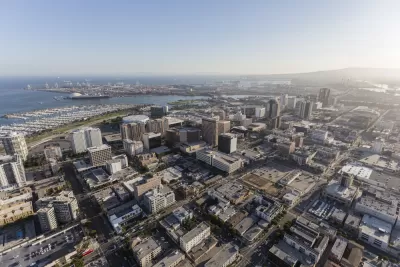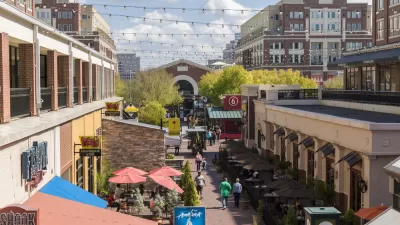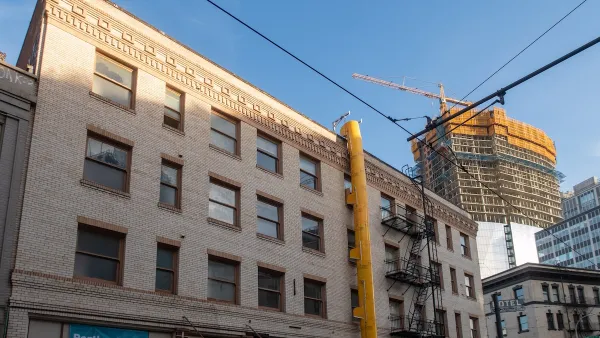Long Beach, California is the latest city to consider small residential units, 350 square feet and smaller, as one way to combat the rising cost of housing.

Planners in Long Beach are completing a pilot program that would "allow for the production of 500 micro-units in Downtown and Midtown" in Long Beach, California, reports Emma DiMaggio.
Micro-units, defined in the article as residential units totaling 350 square feet or less, are expected to provide new options for housing affordability in the city. "Around 52% of all apartments in Long Beach cost more than $2,000 a month for an average space of 801 square feet," explains DiMaggio. "While micro-units aren’t necessarily affordable by definition, the program will help fulfill the city’s obligation to create affordable housing."
"While micro-units may not be 100% affordable, they will contribute to the city’s affordable housing stock. Since Downtown and Midtown will be subject to the city’s new inclusionary housing policy, at least 11% of rental units will be reserved for very low-income households," adds DiMaggio.
Long Beach would follow a number of larger cities in allowing smaller residential units in recent years—San Francisco, Seattle, Boston, and New York City are listed in the article, but locally, Pasadena has also recently created a similar allowance for small residential units in local zoning codes.
FULL STORY: City plan for micro-units may alleviate the city’s housing crisis and create a new pathway for homeownership

Planetizen Federal Action Tracker
A weekly monitor of how Trump’s orders and actions are impacting planners and planning in America.

Restaurant Patios Were a Pandemic Win — Why Were They so Hard to Keep?
Social distancing requirements and changes in travel patterns prompted cities to pilot new uses for street and sidewalk space. Then it got complicated.

Map: Where Senate Republicans Want to Sell Your Public Lands
For public land advocates, the Senate Republicans’ proposal to sell millions of acres of public land in the West is “the biggest fight of their careers.”

Maui's Vacation Rental Debate Turns Ugly
Verbal attacks, misinformation campaigns and fistfights plague a high-stakes debate to convert thousands of vacation rentals into long-term housing.

San Francisco Suspends Traffic Calming Amidst Record Deaths
Citing “a challenging fiscal landscape,” the city will cease the program on the heels of 42 traffic deaths, including 24 pedestrians.

California Homeless Arrests, Citations Spike After Ruling
An investigation reveals that anti-homeless actions increased up to 500% after Grants Pass v. Johnson — even in cities claiming no policy change.
Urban Design for Planners 1: Software Tools
This six-course series explores essential urban design concepts using open source software and equips planners with the tools they need to participate fully in the urban design process.
Planning for Universal Design
Learn the tools for implementing Universal Design in planning regulations.
Heyer Gruel & Associates PA
JM Goldson LLC
Custer County Colorado
City of Camden Redevelopment Agency
City of Astoria
Transportation Research & Education Center (TREC) at Portland State University
Camden Redevelopment Agency
City of Claremont
Municipality of Princeton (NJ)





























